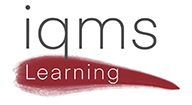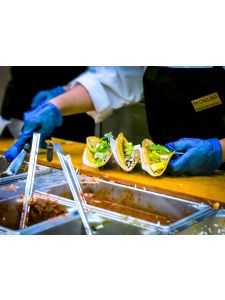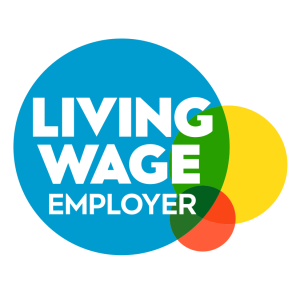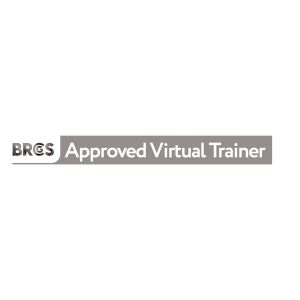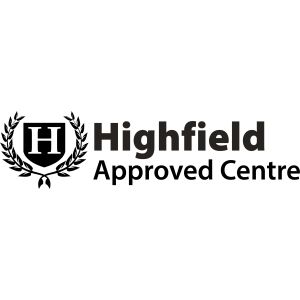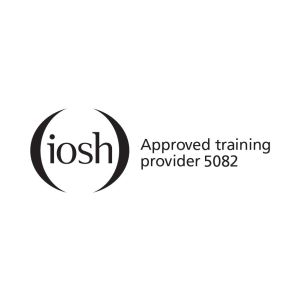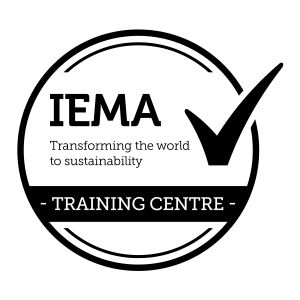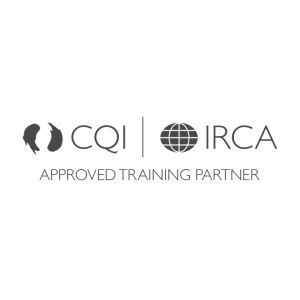Aimed at all organisations in the food and feed industries, regardless of size or sector ISO 22000:2018 translates Food Safety Management into a continuously improving process. It takes a precautionary approach to food safety by helping to identify, prevent and reduce foodborne hazards in the food and feed chains. The 2018 version brings clarity of understanding and offers a dynamic control of food safety hazards combining the following generally recognised key elements: interactive communication, systems management, Prerequisite Programmes (PRPs) and the principles of Hazard Analysis and Critical Control Points (HACCP). This intensive, challenging and highly interactive CQI and IRCA Certified training program is for those people who require an in-depth understanding of the knowledge and skills required to perform first, second and third-party audits of Food Safety Management Systems (FSMS) against ISO 22000. Many of the skills acquired on this course can be applied to auditing other Food Safety Management Systems.Please note - If you are looking for a public course and your initial interest is ISO 22000, the FSSC 22000 Lead Auditor course may still be suitable as the course covers ISO 22000 with additional food safety requirements.Duration5 Days, 08:30 – 17:30 (Days 1 to 4) 08:30 – 15:30 (Day 5)Who should attend?This course satisfies the training requirements for those who wish to register as a food safety system lead auditor with the CQI and IRCA Certified training under the food safety auditor scheme Food safety professionals with a responsibility to design, implement and manage a Food Safety Management System that meets the requirements of ISO 22000 Food safety auditors who have been looking to enhance their auditing knowledge and skills or looking to achieve formal recognition for the skills and knowledge that they possess. Auditors, from any organisation in the food chain, who need to lead audits and audit teams, both in their own organisation and in others, such as suppliers, where there is a requirement to audit Food Safety Management Systems against ISO 22000Course content PDCA cycle and its use within an FSMS Terms and definition used in ISO 22000 pre-requisite standards Maintaining and retaining documented information The relationship between ISO 22000 & ISO 22002 series of pre-requisite standards 1st, 2nd and 3rd party audits Benefits of third party accredited certification The audit processes Auditor responsibilities Planning and conducting an audit Auditing Food Safety Management System requirements Generating audit findings Reporting and following up the audit Discuss the content and relationship of FSSC with ISO 22000 Discuss the broadened pre-requisites of ISO 22000 and the additional requirements to meet GFSI recognised certification What are the benefitsThis course is designed not only to help people perform food safety audits, but also to develop delegates’ wider understanding of food safety management systems design and implementation. It will help delegates understand how HACCP can be embedded into the Food Safety Management System of an organisation. Successful completion of the course and the achievement of the 50% pass mark will satisfy the formal training requirements for those wishing to register as an Auditor, Lead Auditor or Principal Auditor with CQI and IRCA Certified training under the food safety auditor scheme.In-House CoursesOffering better value for money, they can be designed to closely match your specific requirements.Style of Delivery and Course LeadersOur course leaders are professional practitioners in the food sector, as well as being qualified, registered and experienced auditors. They have extensive knowledge across a wide variety of food industry organisations such as primary food processing, food manufacturing, retailing and catering. They have cut their teeth within high profile organisations, and fully understand the range of technical, legislative and people challenges that face those with a responsibility for delivering robust food safety management systems and customer confidence.CertificationDelegates successfully completing the course, including the examination will be awarded a CQI and IRCA training accredited certificate. (2339)
Search for "lead auditor"
This practical workshop based course is for those intending to acquire the competencies to audit an organisation's entire Food Safety Management System (FSMS) to meet the requirements of the FSSC 22000 scheme, either as a third or second-party auditor. The Food Safety System Certification 22000 (FSSC 22000) includes a complete certification Scheme for the auditing and certification of a Food Safety Management Systems (FSMS). The scheme was developed through extensive and open consultation with many global stakeholders and uses international and independent standards such as ISO 22000, ISO 9001, ISO/TS 22003, and technical specifications for sector-specific Pre-Requisite Programs (PRPs), such as ISO/TS 22002-1. The FSSC Scheme cover sectors where a technical specification for sector PRPs has been developed and follows the food chain category description as defined in ISO/TS 22003 This intensive, challenging and highly interactive CQI and IRCA Certified training program is for those people who require an in-depth understanding of the knowledge and skills required to perform second and third-party audits of a FSMS against FSSC 22000 or ISO 22000. Many of the skills acquired on this course can be applied to auditing other Food Safety Management Systems.Please note - If you are looking for a public course and your initial interest is ISO 22000, the FSSC 22000 Lead Auditor course may still be suitable as the course covers ISO 22000 with additional food safety requirements.Duration5 Days, 08:30 – 17:00 (Days 1 to 4) 08:30 – 15:30 (Day 5) (Online Exam)Who should attend? This IRCA Certified FSSC 22000 Lead Auditor (FSMS) training course satisfies the training requirements for those who wish to register as a food safety management system lead auditor with the CQI and under the food safety auditor scheme Food safety professionals with a responsibility to design, implement and manage a Food Safety Management System that meets the requirements of FSSC 22000 or ISO 22000 Food safety auditors who have been looking to enhance their auditing knowledge and skills or looking to achieve formal recognition for their skills and knowledge. Auditors, from any Organisation in the food chain, who need to lead audits and audit teams, both in their own Organisation and in others, such as suppliers, where there is a requirement to audit Food Safety Management Systems against FSSC 22000 or ISO 22000 Course objectivesIt is ESSENTIAL that those attending this course have the following prior knowledge: Knowledge of the principles of food safety management including pre-requisite programmes and HACCP It is RECOMMENDED that those attending this course have the following prior knowledge: The relationship between food safety management and the provision of safe food Awareness of common examples of relevant national and local FSMS legislation (in the food sector and country relevant to the delegate) Knowledge of the requirements of FSSC 22000, ISO/TS 22002 and the commonly used food safety management terms and definitions as given in FSSC 22000 The Plan, Do, Check, Act (PDCA) cycle Course content PDCA cycle and its use within an FSMS THE FSSC standard (ISO 22000, ISO 22002 pre-requisite standards and FSSC additional requirements. Terms and definition used in FSSC 22000 and ISO 22000 FSMS Documentation ISO 19011/ ISO17021 and auditing 1st, 2nd, and 3rd party audits Benefits of third-party accredited certification The audit processes Selecting an audit team Stage1, Stage 2, surveillance, unannounced and recertification audits Auditor responsibilities and competencies Planning and conducting an audit Auditing Food Safety Management System requirements Generating audit findings and nonconformities Reporting and following up of an audit What are the benefitsThis practical workshop based course is designed to develop the knowledge and competencies needed to perform an audit of a FSMS. The course will also develop delegates’ wider understanding of food safety management systems design and implementation and understand how HACCP must be embedded into the Food Safety Management System of an organisation for it to be effective. Successful completion of the course and the achievement of the 50% pass mark will satisfy the formal training requirements for those wishing to register as an Auditor, Lead Auditor or Principal Auditor with CQI and IRCA Certified training under the food safety auditor scheme.In-House CoursesOffering better value for money, they can be designed to closely match your specific requirements.Style of Delivery and Course LeadersOur course leaders are professional practitioners in the food sector, as well as being qualified, registered, and experienced auditors. They have extensive knowledge across a wide variety of food industry organisations such as primary food processing, food manufacturing, retailing, and catering. They have cut their teeth within high profile organisations, and fully understand the range of technical, legislative and people challenges that face those with a responsibility for delivering robust food safety management systems and customer confidence.CertificationDelegates successfully completing the course, including the examination will be awarded a CQI and IRCA training accredited certificate. (2682)
Based on the leading global food safety standard, this highly interactive two-day training programme is designed for those people who require a sound understanding of the techniques and principles of food safety auditing. It also covers the role of the food safety auditor in the development and improvement of an effective food safety management system. This course is essential for those who will undertake internal food safety audits, or who will be required to plan, manage and implement internal audit programmes.Duration2 Days, 09.00 – 17.15Who should attend?This course is ideal for food industry personnel intending to become involved in the internal audit process for the maintenance and improvement of their food safety programmes including those: Involved in auditing the site HACCP program or external suppliers Intending to become involved in the internal audit process for the maintenance and improvement of their site’s food safety management system. Typical roles include Quality Assurance Managers, Supervisors and internal audit team members. The audit principles and techniques developed in this course can be applied to any food safety management standard.Course objectivesTo understand the audit process and be able to plan, perform and report the results of internal food safety audits with the aim of developing and improving the food safety management system of an organisation. To help delegates to understanding best practice for ensuring successful internal audits.Course content Introduction to auditing food safety management systems This course is based on ISO 22000, BRCGS and other GFSI recognised standards Audit preparation including audit scheduling, audit planning and audit checklists Performing the audit including opening meetings,non-verbal communications, question techniques, resolving conflict and gathering objective evidence. Presentation of audit findings including the evaluation of audit findings, non-conformity classification, corrective action requests, developing an audit report, closing meeting and root cause analysis. Follow up activities Key to successful internal audits What are the benefitsUpon successful completion of the course delegates will be equipped with the technical skills and knowledge required to plan, conduct and report internal food safety audits. Delegates will also find the interactive nature of the course, it’s challenging content and extensive use of team-based exercises stimulating and surprisingly enjoyable. The knowledge and skills developed in the course can be applied to internal audits of any food safety management standard. Delegates can apply for certification as a CQI and IRCA Certified Internal Auditor if they have also completed an FSMS Foundation Course or can prove equivalent knowledge when applying.In-House CoursesOffering better value for money, they can be designed to closely match your specific requirements.Style of Delivery and Course LeadersOur course leaders have unrivalled management systems design and improvement experience. They are qualified and experienced auditors with extensive practical management experience across a wide range of sectors including manufacturing, finance, pharmaceuticals, local and national government. We have extensive experience working across cultural boundaries, through our work in Europe, Africa, the Middle East, Asia and the AmericasCertificationDelegates successfully completing the course will be awarded a CQI and IRCA Certified training accredited certificate. (2340)
The Highfields Level 4 award course is designed to allow the learner to understand the importance of how to develop, implement and evaluate CODEX based HACCP food safety management procedures.Duration5 Days, 09.00 – 17.15Who should attend?This course is aimed at learners who are working at management level within food manufacturing and catering environments, quality assurance staff or members of the HACCP team. This qualification would also be useful for trainers, auditors, enforcers and other food safety professionals.Course objectivesThe objective of the qualification is to give delegates the skills to lead in the development and implementation of a HACCP system, to critically evaluate HACCP plans and to understand the importance of having an effective HACCP system in place.Course content HACCP and Legislation Preparing for HACCP Pre-requisite Programmes The 7 Codex HACCP Principles HACCP Documentation Critical Control Points Critical Limits Monitoring Corrective Action Maintaining HACCP The HACCP Team Hazard Analysis Implementation Verification Validation Review What are the benefitsOn successful completion, delegates will have a good awareness of HACCP legislation and principles and will understand: The Importance of HACCP based food safety management procedures How to manage the implementation of HACCP based food safety management procedures How to develop and evaluate HACCP based food safety management procedures Style of Delivery and Course LeadersOur course tutors have substantial experience in the understanding of HACCP and related legislation. They are qualified and experienced with extensive practical knowledge across a wide range of sectors in manufacturing, catering and retail.CertificationDelegates successfully completing the Highfields Level 4 Award in HACCP for Management (CODEX Principles) (RQF) course and examination will be awarded a Highfields Qualifications certificate. Qualification Number: 603/2731/5 The RQF is a qualification framework regulated by Ofqual. It is also suitable for delivery in Wales and is regulated by Qualifications Wales.
Culture has been widely seen as both the cause of many Food Safety shortcomings and the solution to ensuring consistently high standards of Product Safety in Food and associated industries. From Retail to Manufacturing, in all sectors of the Food & Drink industry, establishing and demonstrating a good Product Safety culture is now seen as a fundamental requirement to reputable organisations. Attending this 1-day course participants will gain a fundamental understanding of the importance of a positive product safety culture, the critical issues that affect it and how to begin the development process to establish of positive culture within your organisation.Duration1 Day, 08.45 – 18.00Who should attend?Consultants/Auditors/Technical/HR/Senior Management who lead on culture, Operational, Technical & Quality staff, BRCGS & Industry Professionals or anyone involved in implementing and maintaining Product Safety Culture.Course objectives Describe the concept of Product Safety Culture and why a positive culture is important to ensuring product safety and integrity Identify what the standards require, and the function of the Product Safety Culture Plan within a QMS Recognize the link between behaviour and Product Safety Culture and how it underpins product safety assurance Discuss how to measure an organisation's Product Safety Culture through the use of tools and techniques Develop a sustainable Product Safety Culture action plan and how to engage staff to support it Course content The criticality of Food Safety Culture The role of senior management The impact of attitudes and behaviours Developing your own Product Safety Culture Plan What are the benefitsThis BRCGS course is industry-focused, considering organisational culture, leadership and behavioural concepts; inclusive of and generic to all BRCGS Global Standards, in addition to the global market for application to any manufacturing facility - regardless of business size or whether sites have a product scope of food or non-food related goods/ servicesIn-House CoursesOur course tutors are Approved Training Providers for BRCGS. They have extensive practical experience across a wide range of sectors including manufacturing and retail.Style of Delivery and Course LeadersAvailable on an in-house basis use this course to deliver a consistent message across your teams.CertificationTo complete the course, participants will need to submit a product safety plan as a workplace assignment, meeting the assessment criteria with 75% as a passing grade. Delegates successfully completing the course will be awarded a BRCGS Certificate issued by the BRCGS.
